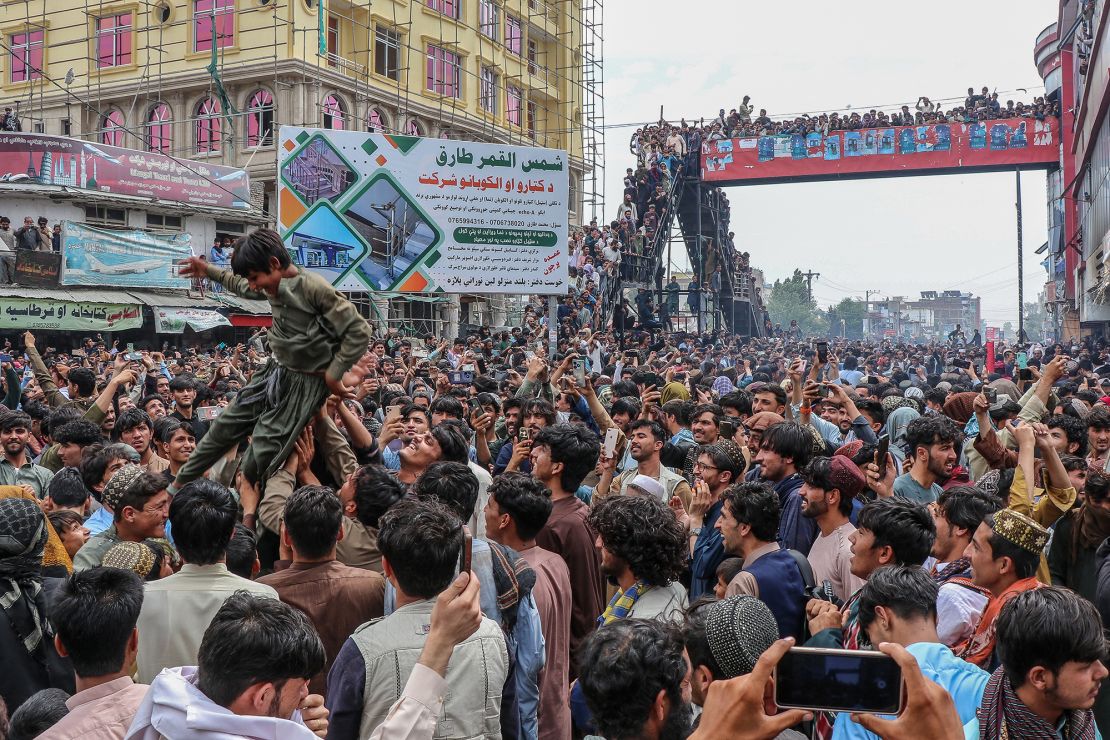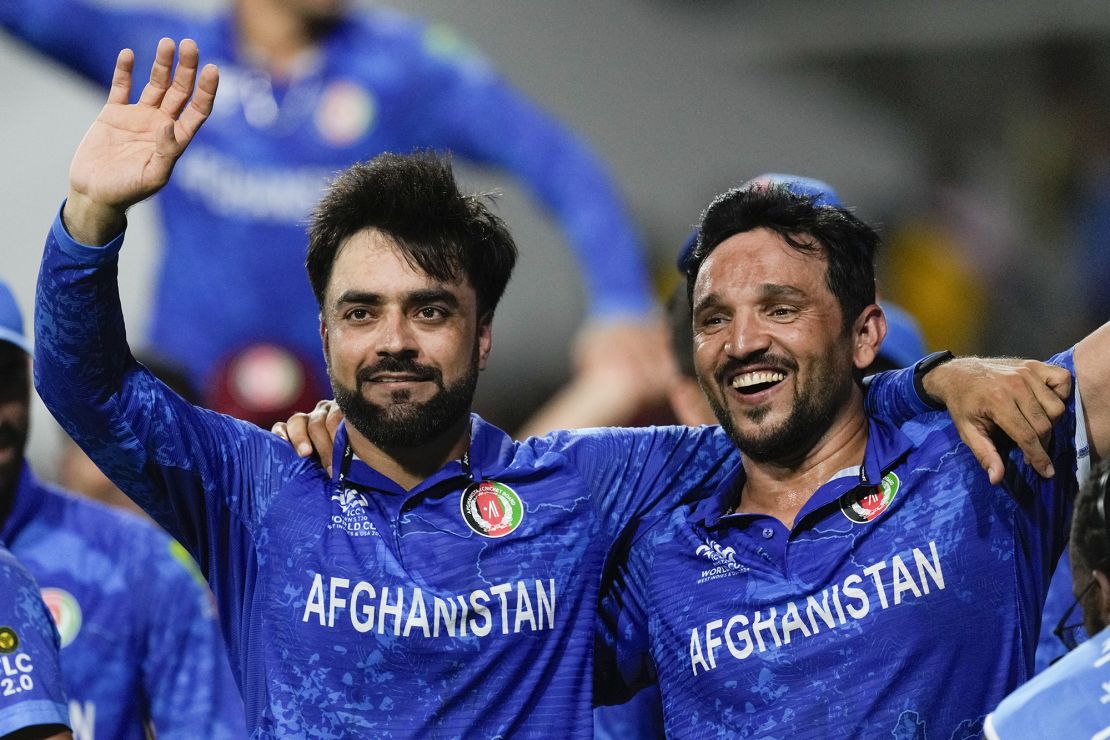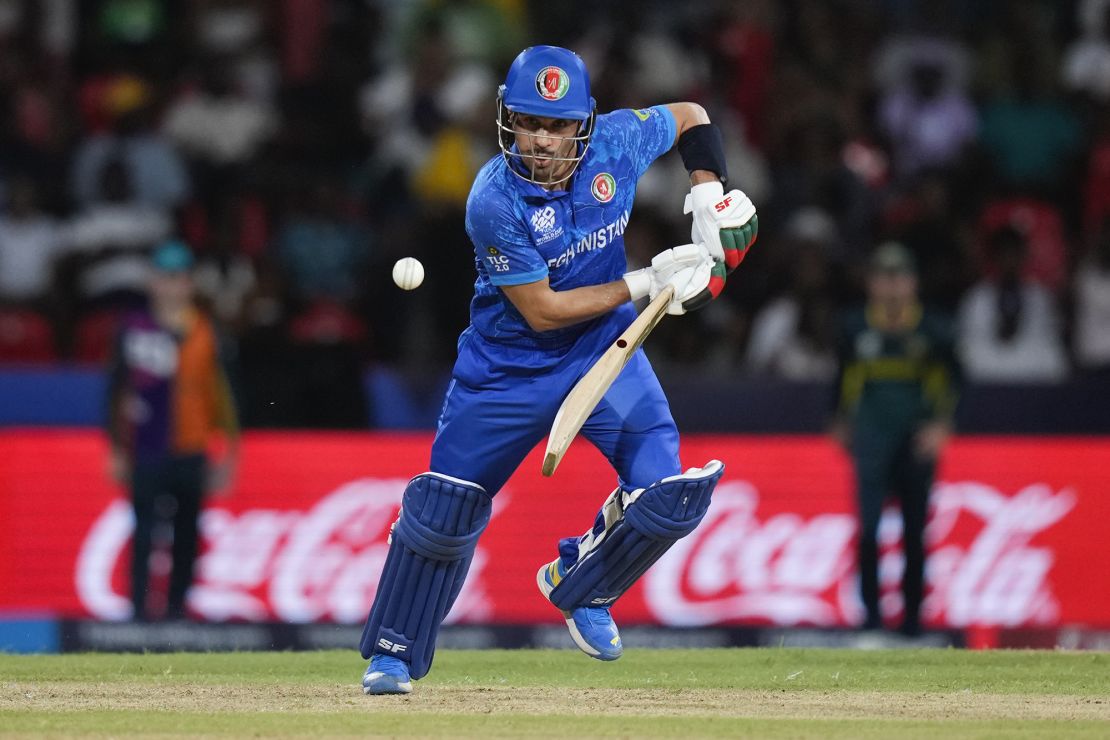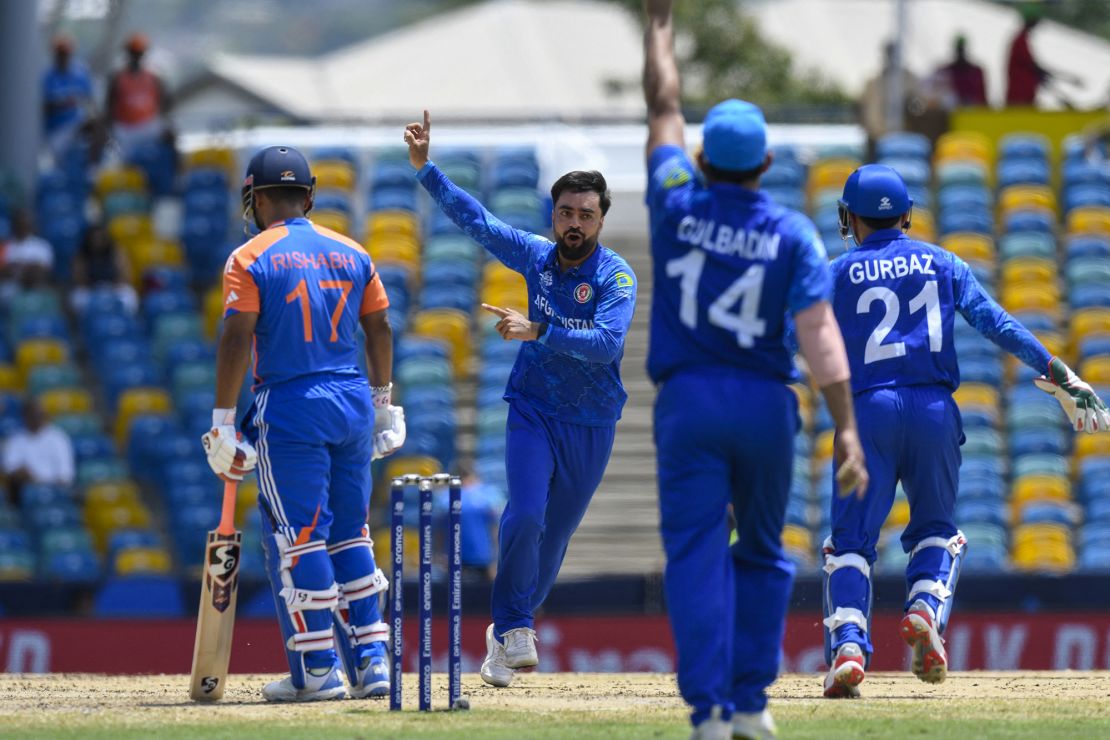Pakistan exited cricket’s T20 World Cup at the group stage. Australia – one of the sport’s heavyweights – couldn’t get past the Super 8 stage. And it?was?at?Australia’s expense that Afghanistan reached the semifinals, a success sparking mass scenes of celebrations back home.
After reaching the tournament’s final four,?the Afghanistan Cricket Board (ACB) posted videos of swarms of fans flooding the streets to celebrate the team’s historic run.
The team was also congratulated by a myriad of influential figures from the country, including former president Ashraf Ghani and the Taliban’s foreign minister, Mullah Amir Muttaqi, and minister of information and culture, Mullah Khairullah Khairkhah.
For a country which has been torn apart through wars and suffered natural disasters such as May’s floods,?Afghanistan captain Rashid?Khan?is conscious that his team’s success provides a degree of happiness for Afghan cricket fans.

Those floods came after drought in Afghanistan and are a dramatic?example of?the?climate crisis hitting those who have least contributed to rising global temperatures.
“Cricket is the only source of happiness back home, you all know that,”?Khan told reporters after the impressive victory over Australia earlier in the tournament
He added: “We hardly see those kind of events?back home where they can celebrate and enjoy those moments, but these games in the World Cups give them so much happiness and that’s something which really, really satisfies me. I don’t care about taking one wicket, two, three, five, six?wickets.
“But when I see those people having those smiles, those celebrations back home in every street?of?Afghanistan, that is something that gives me so much energy and also motivates me?for the upcoming games.”
Afghanistan’s knack of upsetting many of the favored teams at the T20 World Cup?in its?historic run to the final four of the competition?as well as?a?unique approach to the game – see Gulbadin Naib’s sudden cramp after being instructed by head coach Jonathan Trott to slow down –?has been arguably the story of the tournament so far.
The team will now make its first ever appearance at the semifinal?stage when it takes on South Africa in Trinidad and Tobago on Wednesday at 8.30 p.m. ET.

Proving doubters wrong
Whereas many of cricket’s more established nations have been playing for over a century, the sport is still, by comparison, in its nascent stage in Afghanistan.
As Raees Ahmadzai, the former captain of the Afghan national cricket team, told CNN in 2019, the roots of Afghan cricket’s unprecedented surge lie in the?refugee camps near the Pakistani-Afghan border – one cricket-obsessed nation passing on the bug to another.
The national cricket board was only founded in 1995, and it was only recognized as an affiliate member of the International Cricket Council (ICC) in 2001.
Now, the sport is the most popular in the country and its team is full of recognizable names to cricket fans all around the world.
As well as captain Khan – one of the sport’s best spin bowlers – the veteran figures of Mohammad Nabi, Naib and Hashmatullah Shahidi have been regulars on the international stage for years now.
But the team’s?remarkable?run through the tournament has been spearheaded by many of Afghanistan’s newer faces.
Afghanistan’s?pair of 22-year-old batters, Rahmanullah Gurbaz and Ibrahim Zadran, are the first- and third-highest run scorers in the tournament so far, and 23-year-old quick bowler Fazalhaq Farooqi is the World Cup’s leading wicket-taker.

Despite often having star talent, Afghanistan has struggled to put it all together when it matters most, going out in the second round in each of the past three T20 World Cups and never making it out of the group stage in the longer-format One Day International (ODI) World Cup.
Under head coach Trott though, it has found a recipe for winning.
The team’s?diverse spin attack – the three-pronged approach of Khan, Nabi and Noor Ahmad – has left opposing batters bamboozled,?while its opening pairing of Gurbaz and Zadran have given it promising starts to games.
Nothing highlighted the team’s qualities more than its victory over Bangladesh to qualify for the semifinals. Gurbaz scored 43 runs to give?Afghanistan’s?batting line-up a boost while Khan collected four Bangladeshi wickets to stifle any chances of a stable run chase.
“I think the semifinal is going to be a massive, massive inspiration for the youngsters back home in Afghanistan,” said Khan.
“That Afghanistan team got into the semis for the first time,” the 25-year-old told the International Cricket Council (ICC) website.
“And we have done it Under-19 level, but at this level, we haven’t done that (before). Even Super Eight was first time for us and then in semis. It’s an unbelievable feeling.”

A women’s team
While the men’s team is thriving on the international stage, Afghanistan’s?approach to women’s?cricket?has been widely criticized.
Afghanistan is the only ICC full member nation without a women’s team.
The Taliban became the controlling power in Afghanistan in 2021 after the United States’ chaotic, controversial withdrawal from the country after nearly 20 years of fighting.
The regime immediately restricted the ability for women and girls to participate in sports, as well as limiting their opportunities in many other areas of life.
Many of the country’s professional female athletes fled Afghanistan in the wake of the Taliban’s takeover to continue to pursue their sporting careers, with the national team’s football and cricket players leaving to Australia under the threat of death.
In March, Australia postponed its T20 series against Afghanistan, citing worsening ‘conditions for women and girls’ in the country under Taliban rule while there have been no indications that a women’s cricket team will be coming anytime soon.
Barney Ronay, journalist for the Guardian, wrote that?Wednesday’s?semifinal will “be contested by a nation that refuses to permit women’s sport and has disbanded its women’s cricket team. This is where platitudes meet reality for the ICC.”
In a statement sent to CNN, the ICC said it would not “penalize the ACB, or its players for abiding by the laws set by the government of their country. We will continue to constructively use our influence to assist the ACB in developing cricket and playing opportunities for both men and women in Afghanistan.”
The sport’s governing body added that Afghanistan didn’t have a women’s cricket program when it became a full member and that the ICC’s position is consistent with other major sporting federations such as FIFA and the International Olympic Committee.
When Australia postponed that T20 series against Afghanistan earlier this year,?Suhail Shaheen, the Taliban’s spokesman in Doha, questioned what?he?called the CA’s politicization of cricket.
“We keep politics separate from sport. Otherwise, [we] all know the atrocities of the Australian soldiers in Afghanistan who killed innocent children and women. At that time, they had forgotten about women’s rights,” Shaheen told CNN.
And in a statement posted online, the Afghanistan Cricket Board expressed its “disappointment” towards Australia’s decision and “reiterates its stance on neutral and politics-free cricket across the globe.”

